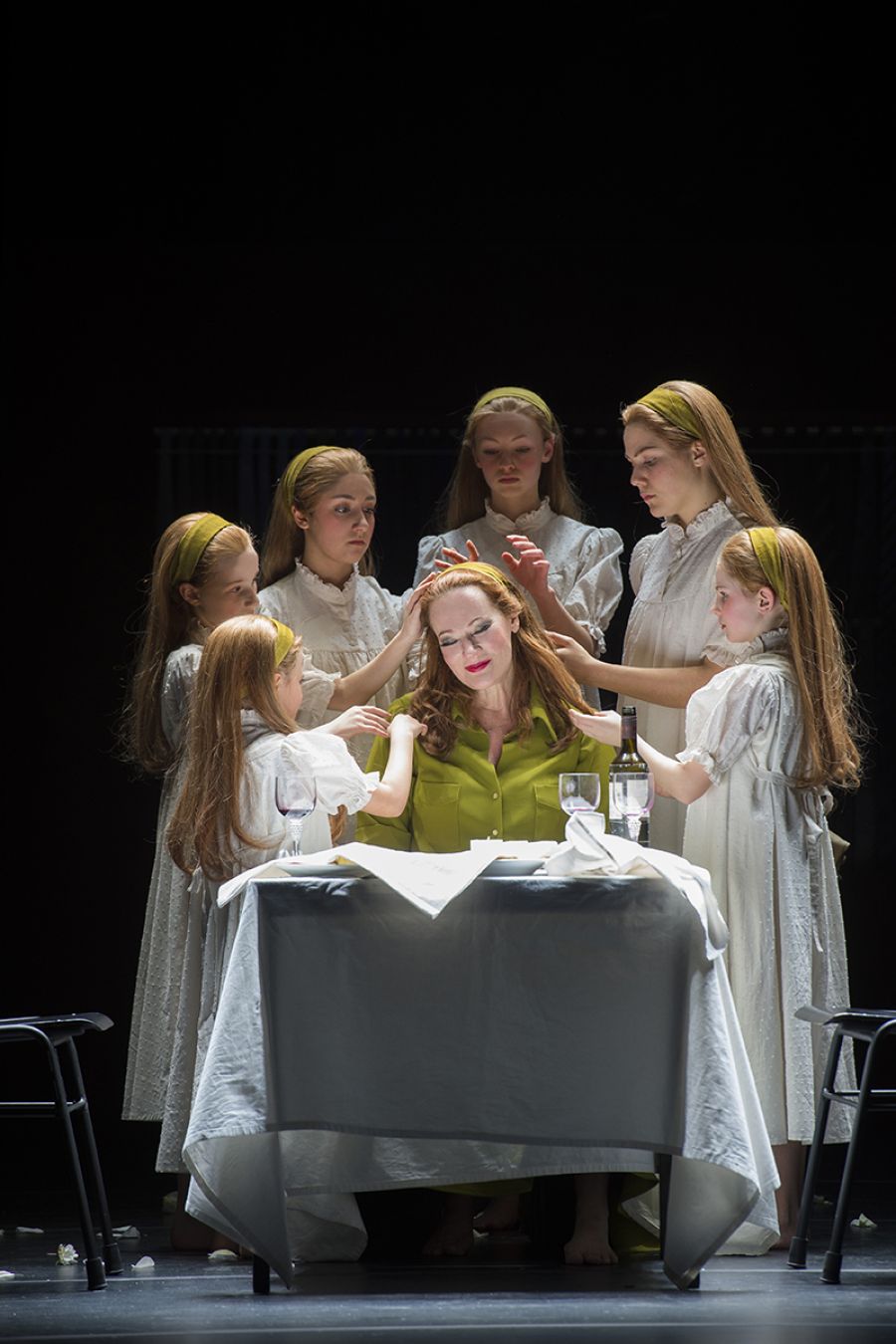Aufbruch ins Unbewusste - Deutsche Oper Berlin
What moves me
A leap into the unknown
Around the turn of the 19th century art, literature and psychoanalysis were affording new insights into the human soul and Oscar Wilde and Richard Strauss created a brand new heroine. Dramaturg Yvonne Gebauer explains the dark depths of Salome
Oscar Wilde wrote »Salome« in French in 1891, shortly before the turn of the 20th century, a time when multiple cultural phenomena were converging and coming to a head. The second half of the 19th century was the Victorian age, a time of contrasts and contradictions that spawned religious puritanism, a strict moral code in matters of sex, »Alice’s Adventures in Wonderland« and Robert Louis Stevenson’s explorations into mystery and madness. The garishly enlightened world of reality was continually subverted by darkness and nightmares. Postdated by a year, Sigmund Freud’s »The Interpretation of Dreams« appeared in 1900. And »Salome« can be analysed thus: as a kind of catchment funnel for the conflicting forces of an era located between rationality and dream world, between puritanism and sensuality.
In 1905, with the century in its infancy, Richard Strauss threw down the gauntlet with his break-out work, SALOME. Dispensing with any prelude and catapulting the audience straight into Salome’s world, he imposed the loveliest, most joyous, most ecstatic music on a story that could hardly be grislier or more monstrous.
We are plunged into a nocturnal world that gives birth to monsters, a place used by Salome as a haven when she can no longer take the abuse she suffers within the family, an abuse bearing the name Herod. Salome is growing up within her stepfather’s circle of associates and cronies, a dynamic, thriving, smoothly functional society on the face of it but underneath repressive and calculating. She lives with her mother Herodias in the house of Herod, a powerful man in a man’s world. And his relationship with his new daughter, the young princess, is a special one: he desires her, plays with her, intimidates her – and incriminates himself.
In this furtive, felonious demi-monde, where Herod gathers his male coterie around him, a different set of rules apply. Salome is used to dancing in front of her stepfather, and it’s become an endlessly repeated ritual, always the sensational culmination of a party thrown by Herod for his men. She is trotted out for a voyeuristic audience, seemingly the only living person in that fish-eye world. A nightmare for the young girl-woman.
In her night-time fantasies she dreams of escape, of a rescuer, a saviour. And this man, too, the antithesis to her stepfather, has a name: Jochanaan. Salome can mould him to suit her wishes – and she uses him as a destructive force, before destroying him herself. Prompted by Salome’s glitteringly subversive fantasy, the foundations of Herod’s static world begin to grind and shift, uneasiness takes hold and Herod sets all levers in motion to preserve his system of rule. Meanwhile, the status quo is shaken by something else: a new age, a new zeitgeist, a new power, with Jochanaan as its herald. And the weaker Herod’s world becomes, the thicker the protective walls of order and discipline around it become. All to no avail; Herod is plagued with nightmares and panic attacks. He lives in fear of losing his hold over his subjects.
Jochanaan is an explosive force of fundamentalism, preaching death and destruction and presaging the end of days. Salome draws inspiration from him, this fiery, demonic beast, because she, too, sees a society on the cusp of a new order. Through Jochanaan she discovers intoxication, ecstasy and the power of resistance. She wants to burst all chains asunder.

As the evening progresses the chinks and cracks in Herod’s world grow in size and number. With each new yell, Jochanaan forces it to cleave to a new age. Salome ends up leaving everything behind her, including the final tie that binds her to Jochanaan. By killing her fantastical hero, she is also killing her father. To stand proud and free, he, too, must be destroyed and consigned to the past. Not until all this is achieved can she create for herself a brand-new world, in which the only rules that apply are her own.





